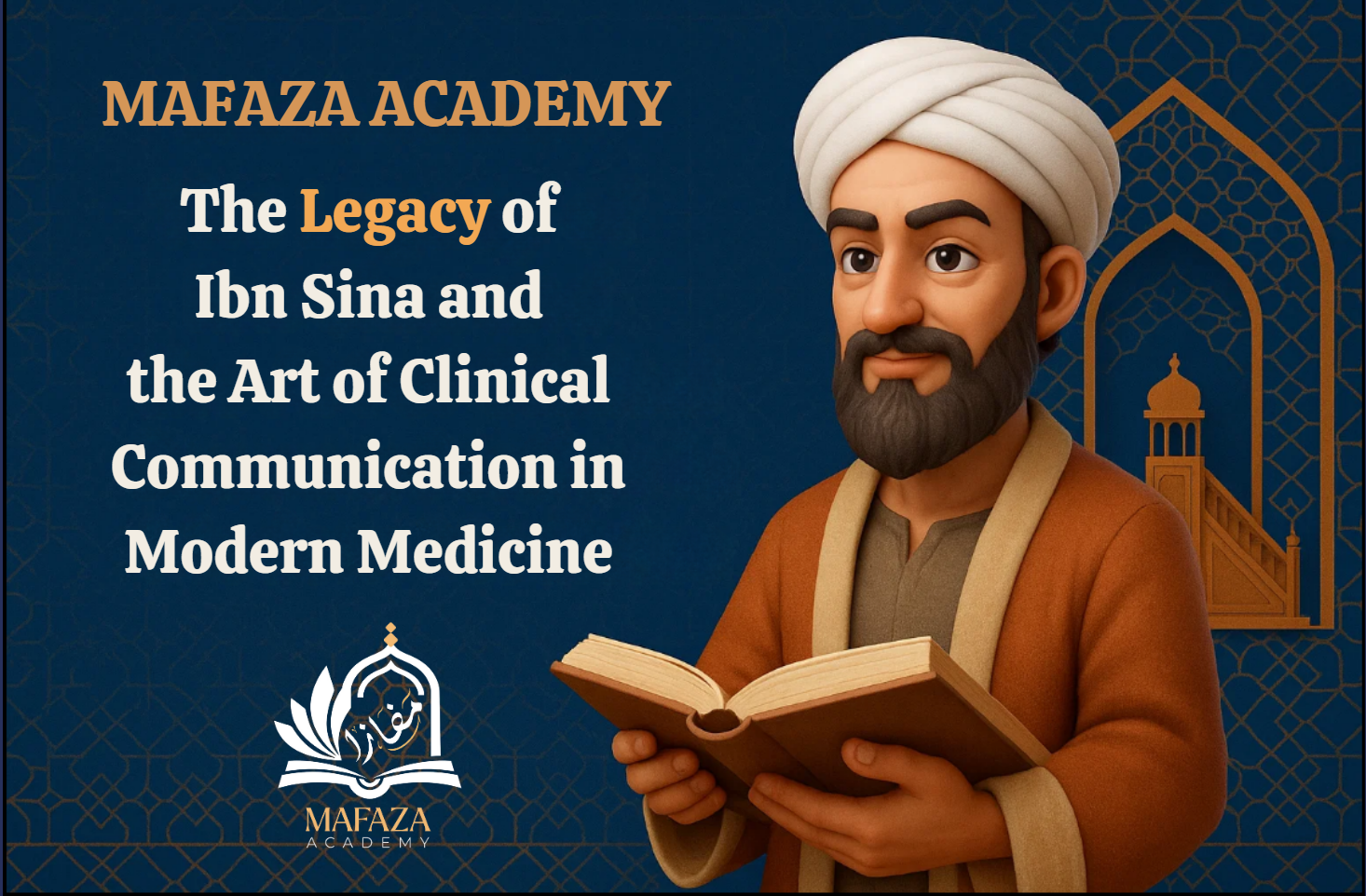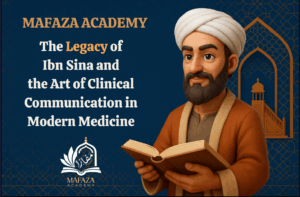Introduction
At Mafaza Academy, we uphold the belief that quality education is a universal right. To enrich our teaching methodologies, we draw inspiration from historical luminaries who shaped the foundations of knowledge. One such figure is Ibn Sina, known in the West as Avicenna, whose groundbreaking work in the early 11th century remains a cornerstone of modern medicine.
In this blog, we explore how Ibn Sina’s approach to medicine emphasizes the critical role of clinical communication—a skill that is as indispensable in healthcare today as it was in his time.
Ibn Sina: A Pioneer of Early Medical Practice
Ibn Sina was a polymath whose contributions to medicine, philosophy, and science made an indelible mark on history. His monumental work, The Canon of Medicine, served as a standard medical reference across the Islamic world and Europe for centuries.
However, Ibn Sina’s legacy extends beyond his discoveries. He emphasized the importance of the interaction between doctor and patient, advocating for principles of empathy and observation. These principles resonate strongly with the modern concept of clinical communication.
Understanding Clinical Communication
Clinical communication refers to the interactions healthcare professionals have with their patients and colleagues. It is a cornerstone of effective healthcare, enabling accurate diagnoses, ensuring patient safety, and fostering compassionate care.
Effective communication isn’t just about the words exchanged. It’s also about empathy, clarity, and understanding—qualities that Ibn Sina championed long before they became formalized in medical practice.
Linking Historical Insights to Contemporary Practices
Ibn Sina’s teachings reveal that empathy, observation, and clear dialogue are timeless pillars of effective medicine. At Mafaza Academy, we take these historical insights and integrate them into our Clinical Communication Bonus Course, preparing healthcare professionals to meet the demands of modern practice with a humanistic touch.
Mafaza Academy’s Commitment to Enhancing Clinical Communication
At Mafaza Academy, we prioritize the development of clinical communication skills through innovative and historically-informed training. Here’s how we achieve this:
- Historically-Informed Curriculum
Our courses incorporate historical perspectives, including Ibn Sina’s principles, to deepen students’ understanding of the art and science of medicine.
- Interactive Training Methods
We leverage modern educational technologies to simulate real-life medical scenarios, helping students practice effective communication in realistic settings.
- Focus on Empathy and Understanding
Just as Ibn Sina emphasized the importance of compassionate care, our training fosters empathy, ensuring that our graduates excel not only in technical skills but also in patient interaction.
Conclusion
Ibn Sina’s teachings remind us that medicine is not merely a science but also an art—especially the art of communication. At Mafaza Academy, we honor this legacy by nurturing the communication skills that transform healthcare professionals into compassionate caregivers.
Join us in celebrating the wisdom of pioneers like Ibn Sina and carrying their vision into your professional practice. Through our innovative programs, we aim to shape the future of medicine, one conversation at a time.
Ready to enhance your clinical communication skills for OET and other prospects of your medical career?
Explore the Clinical Communication Bonus Course and become part of a tradition that values empathy, understanding, and excellence. Book your free consultation today and let us help you set yourself apart with the best way to excel in clinical communication.




